Labour Induction
How to submit an article:
- Registered users can submit any published journal article that has a unique DOI (Digital Object Identifier) name or link to Research Hub.
- For example, you can paste the full DOI link:
https://doi.org/10.1109/5.771073or just the DOI name:10.1109/5.771073into the field above and click submit. - The person who is first to submit a valid article to Research Hub will forever be credited for it, and every article submission earns you +6 Research Points.
Published research studies are articles that present the findings of original research that has undergone a peer-review process and has been made publicly available in scholarly journals, books or other media.

Raspberry Leaves and Extracts-Molecular Mechanism of Action and Its Effectiveness on Human Cervical Ripening and the Induction of Labor
2023 Jul 19 Nutrients Socha MW, Flis W, Wartęga M, Szambelan M, Pietrus M, Kazdepka-Ziemińska A
In conclusion, we believe that raspberry extracts do not present a contractile effect on the uterine muscle and, even if this effect occurs, it is not very highly expressed, and is insignificant, so it will not lead to the release of regular uterine contractions.
Review Article Labour Induction
Effectiveness of aromatherapy in reducing duration of labour: a systematic review
2022 Aug 18 Journal of Obstetrics and Gynaecology Ghiasi A, Bagheri L, Sharaflari F
Systematic Review Lavender Aromatherapy Labour InductionAromatherapy, specifically lavender, appears to be an effective, affordable, and holistic approach to reducing the length of labour in expectant women.
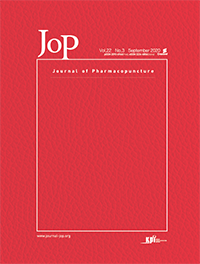
Effect of Castor Oil on Cervical Ripening and Labor Induction: a systematic review and meta-analysis
2022 Jun 30 Journal of Pharmacopuncture Moradi M, Niazi A, Mazloumi E, Lopez V
This meta-analysis showed that oral administration of castor oil is effective for cervical ripening and labor induction.
Systematic Review Meta-Analysis Castor Oil Labour Induction Cervical Dilation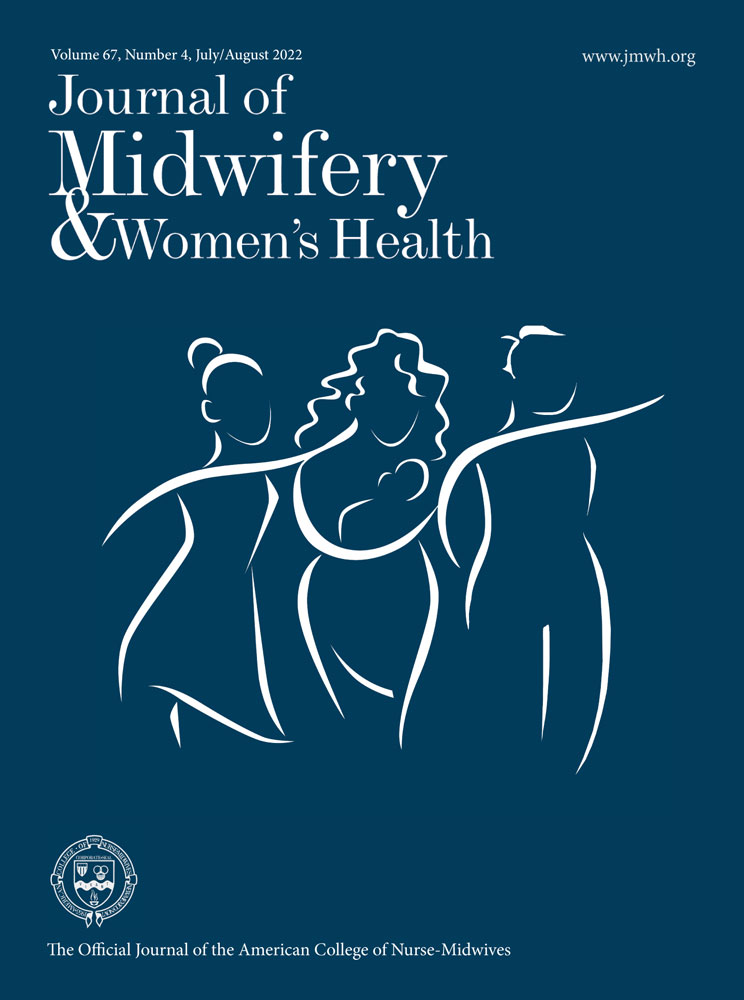
RASPBERRY LEAF IN PREGNANCY: ITS SAFETY AND EFFICACY IN LABOR
2022 Mar 04 Journal of Midwifery & Women's Health Simpson M, Parsons M, Greenwood J, Wade K
The lack of significant differences between the groups on measures expected to demonstrate the effect of raspberry leaf ingestion during pregnancy on labor prompted consideration of the issue of effectiveness of dosage level. Suggestions for further research are offered.
Randomised Controlled Trial Raspberry Leaf Labour Induction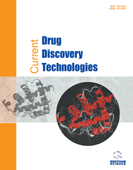
Edible Medicinal Plants on Facilitating Childbirth: A Systematic Review
2022 Mar Current Drug Discovery Technologies Ivari FR, Vatanchi AM, Yousefi M, Badaksh F, Salari R
Systematic Review Chamomile Castor Oil Saffron Dill Seed Labour InductionEdible medicinal plants like saffron, chamomile, dill seeds, and castor oil have demonstrated positive effects on various aspects of labor, indicating potential natural alternatives for aiding childbirth.
Research insights are moderated by the Research Hub team and offer an at-a-glance overview of interesting research findings.

2022 Journal of Obstetrics and Gynaecology
Aromatherapy, specifically lavender, appears to be an effective, affordable, and holistic approach to reducing the length of labour in expectant women.
Systematic Review Aromatherapy Lavender
Effectiveness of aromatherapy in reducing duration of labour: a systematic review
Ghiasi A, Bagheri L, Sharaflari F
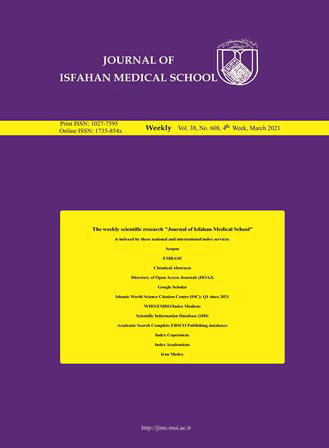
2022 Journal of Isfahan Medical School
Among the mentioned plants, castor oil and date fruit have more evidence in cervical ripening and onset of labor.
Systematic Review Castor Oil Date Fruit Labour
The Effect of Outpatient Herbal Drugs on Cervical Ripening and Onset of Labor: A Systematic Review and Meta-Analysis
Ghasemi M, Ebrahimzadeh-Zagami S, Ghavami V.

2022 Current Drug Discovery Technologies
Edible medicinal plants like saffron, chamomile, dill seeds, and castor oil have demonstrated positive effects on various aspects of labor, indicating potential natural alternatives for aiding childbirth.
Systematic Review Castor Oil Chamomile Dill Seed Saffron
Edible Medicinal Plants on Facilitating Childbirth: A Systematic Review
Ivari FR, Vatanchi AM, Yousefi M, Badaksh F, Salari R

2021 Explore: The Journal of Science & Healing
Date fruit consumption several weeks prior to delivery can decrease the need for labor induction and/or augmentation and might have a beneficial effect on labor duration.
Systematic Review Date Fruit
The effect of late pregnancy date fruit consumption on delivery progress – A meta-analysis
Sagi-Dain L, Sagi S

2021 BMC Complementary Medicine and Therapies
Raspberry leaf for childbirth, highlighting the lack of robust evidence on its effects, safety, and efficacy during pregnancy, emphasizing the need for more comprehensive research.
Systematic Review Raspberry Leaf
Biophysical effects, safety and efficacy of raspberry leaf use in pregnancy: a systematic integrative review
Bowman R, Taylor J, Muggleton S, Davis D
Review Articles
Review articles summarise and critically evaluate the current state of research on a specific topic or field by synthesising multiple primary research studies.

Raspberry Leaves and Extracts-Molecular Mechanism of Action and Its Effectiveness on Human Cervical Ripening and the Induction of Labor
2023 Jul 19 Nutrients Socha MW, Flis W, Wartęga M, Szambelan M, Pietrus M, Kazdepka-Ziemińska A
In conclusion, we believe that raspberry extracts do not present a contractile effect on the uterine muscle and, even if this effect occurs, it is not very highly expressed, and is insignificant, so it will not lead to the release of regular uterine contractions.
Review Article Labour Induction
Effectiveness of aromatherapy in reducing duration of labour: a systematic review
2022 Aug 18 Journal of Obstetrics and Gynaecology Ghiasi A, Bagheri L, Sharaflari F
Systematic Review Lavender Aromatherapy Labour InductionAromatherapy, specifically lavender, appears to be an effective, affordable, and holistic approach to reducing the length of labour in expectant women.

Effect of Castor Oil on Cervical Ripening and Labor Induction: a systematic review and meta-analysis
2022 Jun 30 Journal of Pharmacopuncture Moradi M, Niazi A, Mazloumi E, Lopez V
This meta-analysis showed that oral administration of castor oil is effective for cervical ripening and labor induction.
Systematic Review Meta-Analysis Castor Oil Labour Induction Cervical Dilation
Edible Medicinal Plants on Facilitating Childbirth: A Systematic Review
2022 Mar Current Drug Discovery Technologies Ivari FR, Vatanchi AM, Yousefi M, Badaksh F, Salari R
Systematic Review Chamomile Castor Oil Saffron Dill Seed Labour InductionEdible medicinal plants like saffron, chamomile, dill seeds, and castor oil have demonstrated positive effects on various aspects of labor, indicating potential natural alternatives for aiding childbirth.

The Effect of Outpatient Herbal Drugs on Cervical Ripening and Onset of Labor: A Systematic Review and Meta-Analysis
2022 Mar 19 Journal of Isfahan Medical School Ghasemi M, Ebrahimzadeh-Zagami S, Ghavami V.
Systematic Review Meta-Analysis Date Fruit Labour Induction Castor Oil LabourAmong the mentioned plants, castor oil and date fruit have more evidence in cervical ripening and onset of labor.
Clinical Trials
Clinical trials are research studies that involve people and are conducted to evaluate the safety and efficacy of new treatments or interventions, such as drugs, medical devices, or behavioural therapies.

RASPBERRY LEAF IN PREGNANCY: ITS SAFETY AND EFFICACY IN LABOR
2022 Mar 04 Journal of Midwifery & Women's Health Simpson M, Parsons M, Greenwood J, Wade K
The lack of significant differences between the groups on measures expected to demonstrate the effect of raspberry leaf ingestion during pregnancy on labor prompted consideration of the issue of effectiveness of dosage level. Suggestions for further research are offered.
Randomised Controlled Trial Raspberry Leaf Labour Induction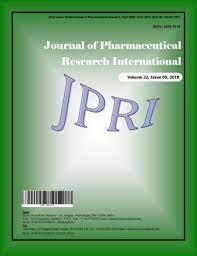
The Effect of Honey Saffron Syrup on Labor Progression in Nulliparous Women
2019 Jul 12 Journal of Pharmaceutical Research International Ghaderi S, Zaheri F, Nouri B, Shahoei R
Randomised Controlled Trial Labour Induction HoneyAdministration of honey saffron syrup reduces the length of all stages of labor in nulliparous women.
Study Protocols
Published study protocols are detailed plans that outline the objectives, methodology, statistical analyses, and organisation of a research study that have been made publicly available for others to review and use as a reference.
Presentation Slides

Systematic Review
Aromatherapy, specifically lavender, appears to be an effective, affordable, and holistic approach to reducing the length of labour in expectant women.
Ghiasi A, Bagheri L, Sharaflari F

Systematic Review
Among the mentioned plants, castor oil and date fruit have more evidence in cervical ripening and onset of labor.
Ghasemi M, Ebrahimzadeh-Zagami S, Ghavami V.

Systematic Review
Edible medicinal plants like saffron, chamomile, dill seeds, and castor oil have demonstrated positive effects on various aspects of labor, indicating potential natural alternatives for aiding childbirth.
Ivari FR, Vatanchi AM, Yousefi M, Badaksh F, Salari R

Systematic Review
Date fruit consumption several weeks prior to delivery can decrease the need for labor induction and/or augmentation and might have a beneficial effect on labor duration.
Sagi-Dain L, Sagi S

Systematic Review
Raspberry leaf for childbirth, highlighting the lack of robust evidence on its effects, safety, and efficacy during pregnancy, emphasizing the need for more comprehensive research.
Bowman R, Taylor J, Muggleton S, Davis D
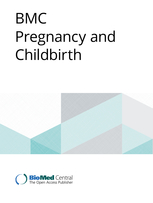
Systematic Review
Meta-analysis showed that date fruit consumption can significantly reduce the active phase of labor, and also significantly improve the bishop score.
Bagherzadeh Karimi A, Elmi A, Mirghafourvand M, Baghervand Navid R

Systematic Review
Eating date fruits seems to reduce gestation duration and duration of the first stage of labor, and also increase cervical dilation on admission.
Nasiri M, Gheibi Z, Miri A, Rahmani J, Asadi M, Sadeghi O, Maleki V, Khodadost M

Randomised Controlled Trial
Administration of honey saffron syrup reduces the length of all stages of labor in nulliparous women.
Ghaderi S, Zaheri F, Nouri B, Shahoei R
Executive Summary
Write an executive summary in the form of a blog article on the topic of "Research into Chinese medicine treatment for Labour Induction" summarising the research below and using language that can be easily understood by patients and avoiding medical jargon using a professional and caring tone of voice.
Write an executive summary in the form of a blog article on the topic of "Researched Chinese medicine treatments for Labour Induction" summarising the research below in an objective and easy to understand way, and using language that can be easily understood by patients. Group the article into Chinese medicine treatments first, followed by nutrition and other treatments. Avoid using medical jargon and use a professional and caring tone of voice.
Write me a concise but easy to understand executive summary on the topic of "Chinese medicine treatments for Labour Induction" based on the following research that I will give you. Your summary should be 2 paragraphs long in Australian English spelling and include references to the studies.
A Systematic Review published in 2022 in the journal Journal of Obstetrics and Gynaecology found that Aromatherapy, specifically lavender, appears to be an effective, affordable, and holistic approach to reducing the length of labour in expectant women. The research executed a systematic review of clinical trial studies regarding the use of aromatherapy in labour augmentation, sourced from diverse databases including Cochrane, Scopus, Web of Science, PubMed, ProQuest, Google scholar, Irandoc, Science direct, Magiran and Sid up until September 2021. 22 articles meeting the inclusion criteria were examined, with the reported experiences of 3234 women who employed a variety of aromatherapies forming the analysis base. In discussing the results, it was observed that certain aromatherapies notably lavender, showed efficacy in decreasing labour time for women. However, the paper emphasized the importance of prudent use of aromatherapy, most probably owing to the varying individual responses and potential for allergic reactions to such holistic interventions.
A Systematic Review published in 2022 in the journal Journal of Isfahan Medical School found that Among the mentioned plants, castor oil and date fruit have more evidence in cervical ripening and onset of labor. 16 articles that met the inclusion criteria were reviewed. Meta-analysis was only possible on castor oil and date fruit. The chance of spontaneous onset of labor in was 5.760 and 2.205 times the castor oil and date groups, respectively. Moreover, the increase in bishop score in castor oil group was 2 times higher than the control group. The results of funnel plot and Egger test found no evidence of publication bias (P = 0.710). Peganum, Sisymbrium, chamomile, and saffron were effective in cervical ripening and onset of labor. Evening primrose was effective on Bishop score, but had no effect on spontaneous onset of labor. Red raspberry leaves were not effective in spontaneous onset of labor.
A Systematic Review published in 2022 in the journal Current Drug Discovery Technologies found that Edible medicinal plants like saffron, chamomile, dill seeds, and castor oil have demonstrated positive effects on various aspects of labor, indicating potential natural alternatives for aiding childbirth. This systematic review explores the potential of oral herbs in aiding childbirth, given the rising interest in natural treatments despite advancements in medical interventions. More than 20% of pregnancies require labor induction, often associated with adverse effects and increased cesarean risk. The study investigates edible plants' impact on cervical readiness, labor onset, pain reduction, and labor duration. Among 20 clinical trials, saffron, chamomile, boiled dill seeds, date, date syrup, Descurainia Sophia, and castor oil have demonstrated positive effects on various labor aspects. Nonetheless, larger-scale studies are needed for a comprehensive understanding of these herbs' mechanisms and effectiveness in facilitating labor.
A Systematic Review published in 2021 in the journal Explore: The Journal of Science & Healing found that Date fruit consumption several weeks prior to delivery can decrease the need for labor induction and/or augmentation and might have a beneficial effect on labor duration. Our meta-analysis yields two prominent important benefits of date fruit consumption by primiparous women during several weeks prior the delivery. First, it can decrease the need for labor induction and/or augmentation by as much as one half of the cases. Second, date fruit might have a beneficial effect on labor duration, especially by 4-hour shortening of the latent phase.
A Systematic Review published in 2021 in the journal BMC Complementary Medicine and Therapies found that Raspberry leaf for childbirth, highlighting the lack of robust evidence on its effects, safety, and efficacy during pregnancy, emphasizing the need for more comprehensive research. This study aims to assess the evidence regarding the effects, safety, and efficacy of raspberry leaf in pregnancy-related contexts. The systematic integrative review analyzes 13 studies, spanning animal and human research, showcasing raspberry leaf's biophysical impact on uterine muscle. While evidence is limited, human studies indicate no significant harm or benefit, though one suggests a potential reduction in second stage labor duration and labor augmentation. Further research is warranted to better understand raspberry leaf's effectiveness in pregnancy.
A Systematic Review published in 2020 in the journal BMC Pregnancy and Childbirth found that Meta-analysis showed that date fruit consumption can significantly reduce the active phase of labor, and also significantly improve the bishop score. Based on the performed searches, this is the first systematic review conducted on the effects of date on bishop score and frequency of caesarean section, and second one on the effects of date on the duration of labor stages. Meta-analysis showed that the consumption of date fruit can significantly reduce the duration of the active phase and improve the bishop score, and may reduce the frequency of cesarean section in intervention group compared to control group. Based on meta-analysis, date palm fruit consumption resulted in a significant reduction in the duration of active phase of labor compared with control group; however, it is not observed in the first, second, and the third stage of labor.
A Systematic Review published in 2019 in the journal Complementary Therapies in Medicine found that Eating date fruits seems to reduce gestation duration and duration of the first stage of labor, and also increase cervical dilation on admission. In total, 11 and 8 studies were included in the systematic review and meta-analysis. Meta-analysis revealed that date fruit consumption significantly reduced gestation duration, increased cervical dilation on admission, and shorten duration of first stage of labor. Also, it was revealed that date fruit consumption significantly reduced duration of second stage of labor in fixed-effects model; however, this effect was not significant in random-effects analysis.
A Randomised Controlled Trial published in 2019 in the journal Journal of Pharmaceutical Research International found that Administration of honey saffron syrup reduces the length of all stages of labor in nulliparous women. The study divided eligible nulliparous women randomly into three equal groups. The first group was given saffron syrup prepared with honey, the second group received saffron syrup made with sugar, and the control group received a placebo. These were given orally every two hours. Analysis was conducted via Fisher’s test, ANOVA with Fisher’s post hoc test, and a Repeated measure statistical method. In the results, it was evident that the mean duration of labor in the groups administered with the saffron syrups was significantly shorter than in the control group. Moreover, the length of the first stage of labor in the honey saffron syrup group was considerably less than in the sugar saffron syrup group. This indicates the effectiveness of honey saffron in shortening labor duration.
Moderation Tools
Topic
Sign In
Users not signed in are limited to viewing the 5 most recent items of content.
While the research shows that castor oil can be effective in labour induction, in practice, it is highly discouraged for pregnant women to consume castor oil by themselves due to the potential for overdosing and side effects. For labour induction, castor oil should not be used without medical supervision. —Jinnan C 8 Jan 2024